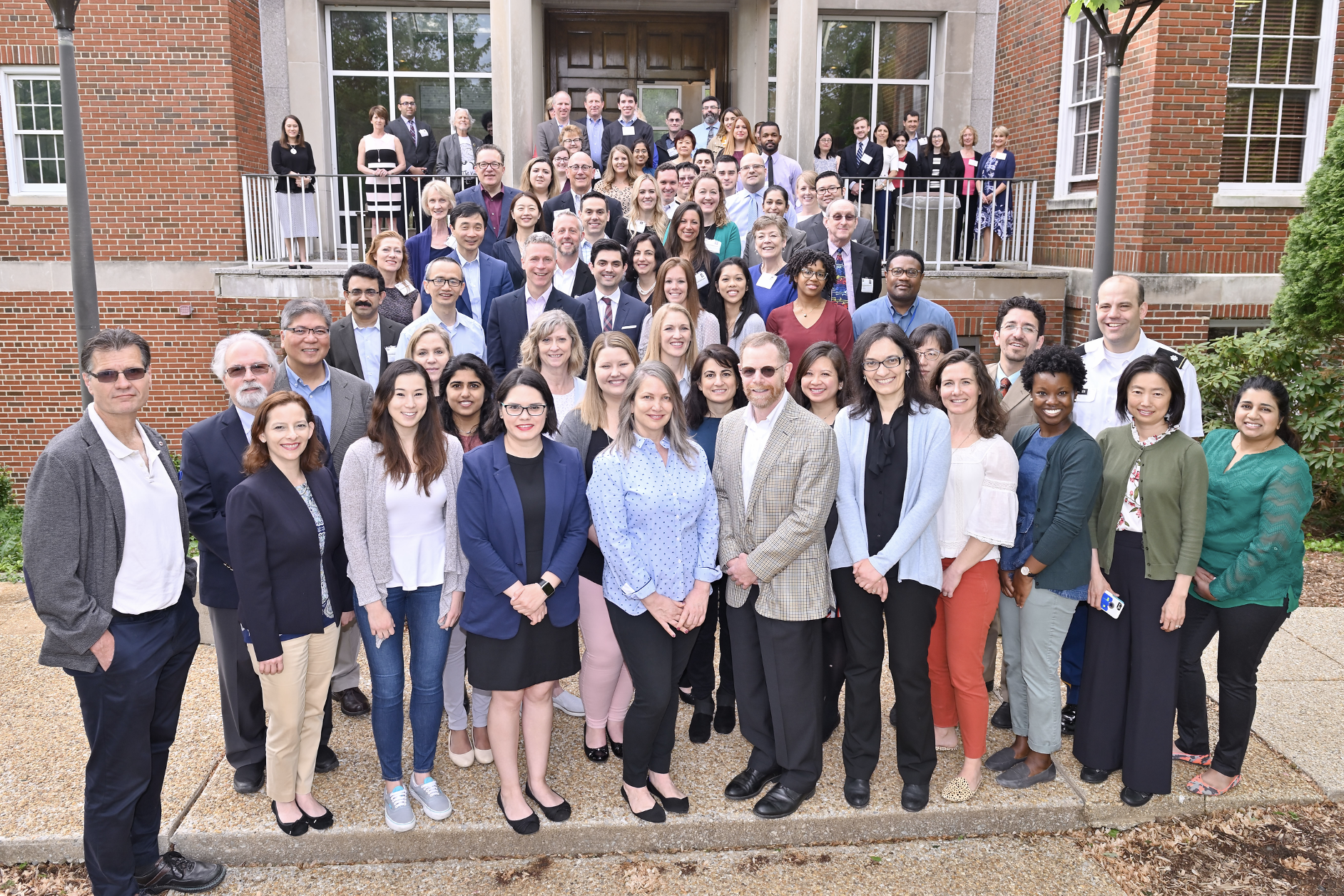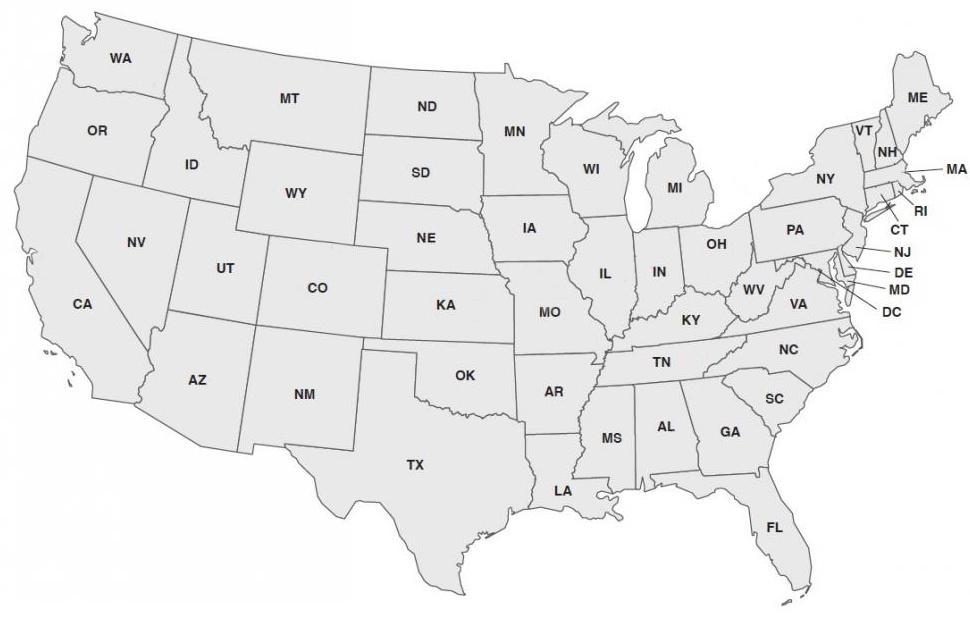The mission of the Brain Tumor Trials Collaborative (BTTC) is to develop and perform state-of-the-art clinical trials in a collaborative and collegial environment—advancing treatments for patients with brain and spine tumors that merge sound scientific methods with concern for patient well-being.
The BTTC was created in 2003 as a network of professionals who investigate new treatments, allowing patients across the nation to participate in cutting-edge clinical trials that help health care providers more rapidly determine the benefits of various therapies. The NCI Center for Cancer Research's Neuro-Oncology Branch (NOB) serves as the BTTC's lead institution and provides administrative infrastructure, clinical databases, and oversight for the collaborative.
In 2018, the BTTC network of 33 institutions joined NCI-CONNECT (Comprehensive Oncology Network Evaluating Rare CNS Tumors), a Cancer Moonshot℠-funded program also managed at the NOB. NCI-CONNECT advances our understanding of rare central nervous system (CNS) cancers in adults by fostering patient-advocacy-provider partnerships. By collaborating with advocacy organizations and the BTTC network to perform clinical trials and care for patients, NCI-CONNECT aims to improve approaches to care and treatment for people with rare CNS tumors.
Contact our BTTC team by emailing NCI_BTTC@mail.nih.gov or calling 240-760-6060.
Clinical trials are medical research studies conducted to understand whether promising approaches to cancer prevention, diagnosis, and treatment are safe and effective in patients. Since its inception, the BTTC has spearheaded unparalleled advancements in the research of brain and spine tumors, and completed many clinical trials that increase survival and improve quality of life.
Completed BTTC Clinical Trials
The BTTC has launched eight clinical trials since its inception in 2003. These clinical trials, listed below, are now closed to accrual.
- GBM Pembrolizumab HSPPC-96 - Newly Diagnosed Glioblastoma Before Surgery
This phase 2 clinical study evaluated the combination of a personalized cancer vaccine made from the patient’s own tumor tissue (HSPPC-96) and PD-1 inhibition (pembrolizumab) in newly diagnosed glioblastoma patients. - Everolimus/Sorafenib Study - Recurrent High-Grade Gliomas
This phase 1/2 clinical study evaluated the safety and efficacy of everolimus and sorafenib in patients with recurrent high-grade gliomas. - Pazopanib/Topotecan Study - Recurrent Glioblastoma
This phase 2 clinical study evaluated whether pazopanib is safe and effective to give in combination with topotecan, and if this pairing can control glioblastoma. - Bevacizumab/Vorinostat Study - Recurrent Glioblastoma
This phase 1/2 clinical study evaluated symptoms and their relationship to disease progression in adults with recurrent glioblastoma, as well as tolerance to bevacizumab alone versus bevacizumab plus vorinostat. - Bevacizumab/Erlotinib Study - Newly Diagnosed Malignant Glioma
This phase 2 clinical study evaluated the effects and overall survival rates in newly diagnosed malignant glioma patients who received a combination of bevacizumab and erlotinib after completing radiation therapy with temozolomide. - Temozolomide Combination Study - Newly Diagnosed Glioblastoma
This phase 2 clinical study determined if temozolomide administered alone or in combination with thalidomide, isotretinion, and/or celecoxib was effective in the continued treatment of newly diagnosed glioblastoma patients after radiation therapy. - Lacosamide Study – High-Grade Gliomas
This clinical study measured how well lacosamide prevented seizures in patients with malignant gliomas. - Vorinostat/Isotretinoin/Temozolomide Study – Recurrent Glioblastoma
This phase 1/2 study measured if vorinostat, given with isotretinoin and temozolomide, helped to control glioblastoma or gliosarcoma. The safety of these drug combinations was also assessed.
Open NCI-CONNECT Clinical Studies
The BTTC/NCI-CONNECT network is also participating in two multi-center NCI-CONNECT clinical studies that are currently enrolling.
- Nivolumab Study – Recurrent Rare CNS Tumors
This clinical trial is investigating whether the immunotherapy drug nivolumab is an effective treatment for patients with rare CNS tumors. - Tissue Outcomes and Pregnancy Sub Study – Rare CNS Tumors and Primary Brain Tumors
This study examines tumor tissue from patients with rare CNS tumors and clinical data from patients who were pregnant at diagnosis or became pregnant after diagnosis to determine correlations with outcome.
The BTTC/NCI-CONNECT network is instrumental in referring patients to NCI-CONNECT clinical studies at NIH.
Updated: August 31, 2023
Published Papers
- Proceedings of the Survivorship Care in Neuro-Oncology Workshop sponsored by the Comprehensive Oncology Network Evaluating Rare CNS Tumors (NCI-CONNECT) Neuro-Oncology Advances 2022
- An innovative virtual multi-institutional, multidisciplinary neuro-oncology tumor board: the NIH-NOB experience during the COVID-19 pandemic Neuro-Oncology 2021
- Immune checkpoint inhibitor nivolumab in people with recurrent select rare CNS cancers: results of interim analysis in a heavily pretreated cohort Neuro-Oncology 2021
- Proceedings of the Comprehensive Oncology Network Evaluating Rare CNS Tumors (NCI-CONNECT) Adult Medulloblastoma Workshop Neuro-Oncology Advances 2020
- Proceedings of the Comprehensive Oncology Network Evaluating Rare CNS Tumors (NCI-CONNECT) Oligodendroglioma Workshop Neuro-Oncology Advances 2020
- NCI-CONNECT: Comprehensive Oncology Network Evaluating Rare CNS Tumors – Histone Mutated Midline Glioma Workshop Proceedings Neuro-Oncology Advances 2020
- A phase II study of dose-dense temozolomide and lapatinib for recurrent low-grade and anaplastic supratentorial, infratentorial, and spinal cord ependymoma Neuro-Oncology 2020
- A bayesian adaptive randomized phase II multicenter trial of bevacizumab with or without vorinostat in adults with recurrent glioblastoma Neuro-Oncology 2020
- Adding immune-based treatments to standard glioblastoma therapy NCI 2017
- A phase II study of bevacizumab and erlotinib after radiation and temozolomide in MGMT unmethylated GBM patients Journal of Neuro-Oncology 2015
- Brain Tumor Trials Collaborative Bayesian Adaptive Randomized Phase II trial of bevacizumab plus vorinostat versus bevacizumab alone in adults with recurrent glioblastoma (BTTC-1102) ASCO 2015
- A phase I trial everolimus and sorafenib in patients with recurrent high-grade gliomas: Brain Tumor Treatment Collaborative trial 09-01 ASCO 2015
- Randomized phase II adjuvant factorial study of dose-dense temozolomide alone and in combination with isotretinoin, celecoxib, and/or thalidomide for glioblastoma Neuro-Oncology 2015
- BTTC08-01: A phase II study of bevacizumab and erlotinib after radiation therapy and temozolomide in patients with newly diagnosed glioblastoma without MGMT promoter methylation ASCO 2013
- Randomized phase II 8-arm factorial study of adjuvant dose-dense temozolomide with permutations of thalidomide, isotretinoin, and/or celecoxib for newly diagnosed glioblastoma ASCO 2012
BTTC Annual Program and Clinical Trial Planning Meetings
- 2021: The NCI-CONNECT and BTTC Clinical Trial Meeting was held virtually on November 18, 2021, during the Society for Neuro-Oncology Annual Meeting.
- 2021: The NCI-CONNECT and BTTC Annual Meetings were held virtually from July 29 to 30, 2021.
- 2020: The NCI-CONNECT and BTTC Annual Meetings were held virtually on August 21, 2020.
- 2019: The NCI-CONNECT and BTTC Annual Meetings were held from April 29 to 30, 2019 at NIH. Learn more >
- 2018: The inaugural NCI-CONNECT Meeting was held in conjunction with the BTTC Annual Meeting from June 11 to 12, 2018 at NIH. Learn more >
- 2017: The BTTC held its Annual Meeting on March 31, 2017 at NIH. Learn more >
Updated: August 31, 2023
Each of the participating BTTC and NCI-CONNECT institutions is committed to discovering new and effective therapies for treating brain and spine tumors, while providing compassionate care to enhance patient outcomes and well-being. Contact the NOB if you have questions about BTTC or NCI-CONNECT clinical trials. To refer a patient, email NCINOBReferrals@mail.nih.gov or call (240) 760-6010. Learn more about participating institutions by clicking the markers on the map below.

